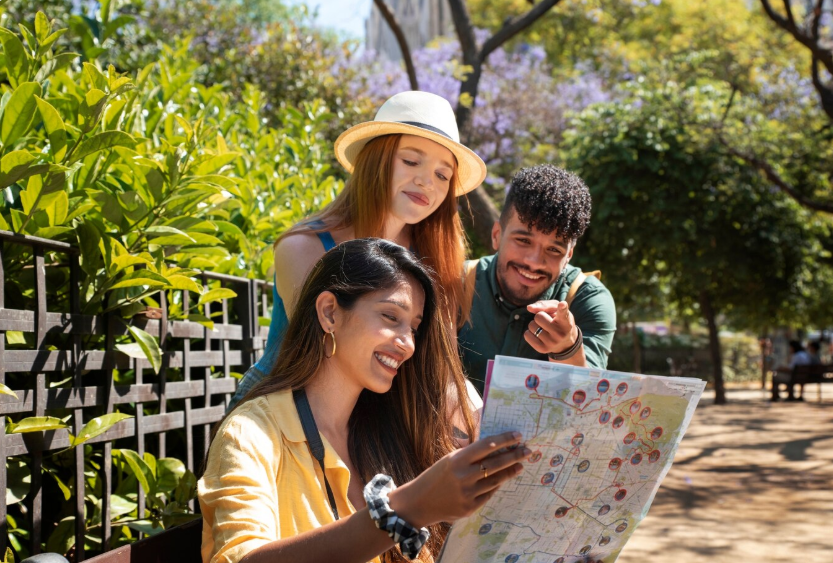The Power of Cultural Immersion Travel: Experiencing the World Authentically
In today’s interconnected world, travel has become more than a luxury—it’s a doorway to deeper understanding, empathy, and personal transformation. For company directors, global entrepreneurs, and curious professionals, cultural immersion travel presents an unparalleled opportunity to authentically experience life in another part of the world while enriching both personal and business perspectives.
Why Cultural Immersion Travel Matters
Unlike typical tourism, which often revolves around sightseeing and pre-packaged experiences, cultural immersion travel dives beneath the surface. It focuses on living as the locals do, understanding their customs, tasting their everyday cuisine, and participating in their daily routines. This form of travel fosters a greater appreciation for diversity and helps dismantle stereotypes, all while building stronger interpersonal and intercultural communication skills.
Benefits Beyond Sightseeing
- Deeper Cultural Understanding: Immersive travel allows individuals to see the world through a different lens. By living within a community, travelers gain insights into traditions, values, and social structures that define that culture.
- Stronger Emotional Intelligence: Experiencing cultural norms firsthand can challenge assumptions and cultivate patience, adaptability, and open-mindedness—key traits for business and leadership success.
- Professional Edge: Leaders who understand global cultures are better positioned to negotiate, collaborate, and innovate on an international scale.
- Language Skills: Being surrounded by a new language accelerates learning and helps you grasp the nuances of communication far better than any classroom setting.
How to Travel Authentically
To truly immerse yourself in a new culture, it’s important to approach travel with intentionality and openness. Here are some practical ways to ensure your experience is meaningful:
1. Live Like a Local
Skip the hotels and stay in locally owned accommodations or with host families. Explore neighborhoods off the tourist map. Shop at local markets and try regional dishes at family-run eateries.
2. Participate in Cultural Activities
Whether it’s attending a traditional cooking class in Thailand, participating in a village ceremony in Ghana, or helping with olive harvests in Italy, hands-on experiences bring cultural values to life.
3. Learn Basic Language Skills
Even learning a few essential phrases can go a long way in breaking down barriers and showing respect. Locals often appreciate the effort and may open up more readily.
4. Volunteer or Work Abroad
Volunteering or working abroad provides direct engagement with the local community, fostering mutual understanding and growth. It’s also a fantastic way to gain new professional perspectives.
5. Be a Respectful Observer
Observe local customs, dress appropriately, and avoid behaviors that may be considered offensive. Always ask questions with curiosity and humility.
Real Impact of Immersive Travel
One of the most powerful aspects of cultural immersion is the ability to carry those lessons home. Many travelers find themselves transformed—more empathetic, globally conscious, and aware of their role in the broader human experience. These shifts are particularly relevant for leaders who aim to inspire inclusive, culturally sensitive organizations.
Moreover, as sustainability and responsible travel gain momentum, immersion travel supports local economies more directly. Spending money on community-run projects, fair-trade artisans, and neighborhood businesses contributes to ethical tourism and mutual prosperity.
Learning New Languages as an Expat: Strategies for Quick Success
Moving to a new country can be both thrilling and overwhelming. One of the most valuable skills for adapting quickly is learning the local language. Here are a few proven strategies:
- Immerse Yourself Daily: Surround yourself with the language in everyday situations—listen to local radio, watch TV shows, read newspapers, and engage in conversation with locals.
- Use Language Apps: Tools like Duolingo, Babbel, or Memrise are excellent for daily practice and vocabulary building.
- Take Structured Classes: Sign up for language courses designed specifically for expats. Many community centers offer immersive programs at various levels.
- Hire a Language Coach: A private tutor or coach can tailor lessons to your specific needs and help correct pronunciation and grammar in real time.
- Practice Without Fear: Embrace mistakes and speak as much as possible. Locals generally appreciate the effort, and it’s the quickest way to improve.
Language learning is not just about communication—it’s a powerful gateway to understanding the culture, forging authentic connections, and fully enjoying your expat experience.
Stay Connected for More Travel and Lifestyle Inspiration.
For more insights into travel, culture, and lifestyle tips, follow me on @salvadorordorica. If you’re seeking professional translation and localization services to enhance your global ventures, visit The Spanish Group — your trusted partner in bridging cultures worldwide.



